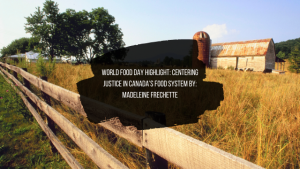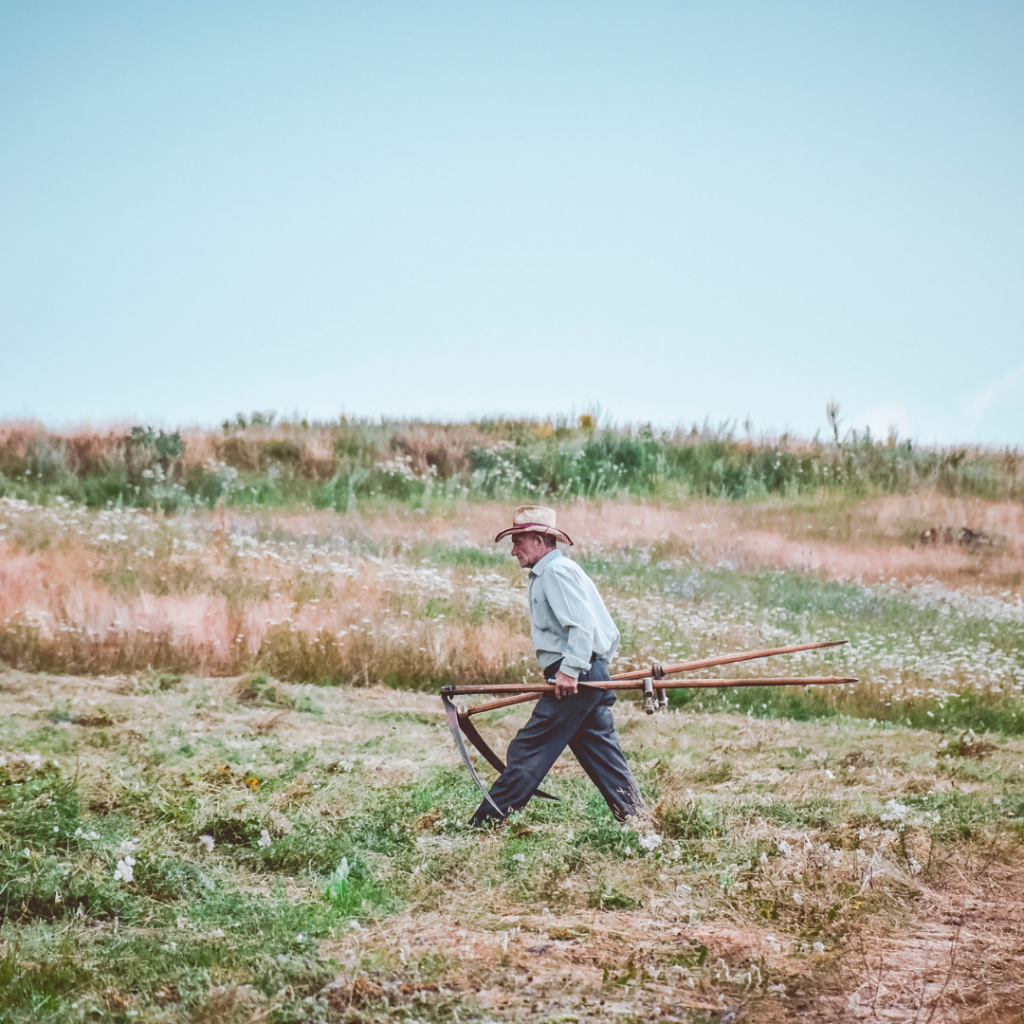 October 16, 2020 was World Food Day, an annual event established by the United Nations with the aim of increasing awareness of various food issues facing the global community, such as world hunger and poverty, and inspiring strategies for the betterment of the global food system and solutions for lasting change. Unlike previous World Food Days, this year we had the opportunity to reflect on the extensive and far-reaching impacts that COVID-19 has had on food systems in Canada and abroad. To celebrate this monumental World Food Day, and to highlight the impacts of COVID-19 on the Canadian food system, the Laurier Centre for Sustainable Food Systems hosted the webinar Centering Justice in Canada’s Food System. This webinar explored various challenges and inequities within the food system that have been exacerbated by COVID-19, with a particular focus on the disproportionate impacts that COVID-19 has had on BIPOC communities and migrant agricultural workers across the country.
The webinar was moderated by Alison Blay-Palmer, Director of the Laurier Centre for Sustainable Food Systems and UNESCO Chair on Food, Biodiversity, and Sustainability Studies. Among the webinar speakers were Gabriel Allahdua from Justice for Migrant Workers, Janet McLaughlin from the International Migration Research Centre at Wilfrid Laurier University, Melana Roberts from Food Secure Canada and the Toronto Food Policy Council, and Stephanie Morningstar from the Northeast Farmers of Color Land Trust. The speakers discussed how food system inequities have been exacerbated by COVID-19, as well as the impacts of the pandemic on their own work. They also suggested various strategies for collaboration among various actors and interest groups to create a just, representative, and equitable food system.
The speakers engaged in a productive and insightful conversation regarding the state of the Canadian food system. Regarding the experiences of Black Canadians amidst the COVID-19 pandemic, Melana Roberts emphasized the importance of bringing forward underrepresented racialized voices that have been silenced in the food system. In highlighting these silenced voices, we may cultivate diversity within the systems of knowledge, governance, and growing that are present within the Canadian food system. In doing so, we may shift the disproportionate
October 16, 2020 was World Food Day, an annual event established by the United Nations with the aim of increasing awareness of various food issues facing the global community, such as world hunger and poverty, and inspiring strategies for the betterment of the global food system and solutions for lasting change. Unlike previous World Food Days, this year we had the opportunity to reflect on the extensive and far-reaching impacts that COVID-19 has had on food systems in Canada and abroad. To celebrate this monumental World Food Day, and to highlight the impacts of COVID-19 on the Canadian food system, the Laurier Centre for Sustainable Food Systems hosted the webinar Centering Justice in Canada’s Food System. This webinar explored various challenges and inequities within the food system that have been exacerbated by COVID-19, with a particular focus on the disproportionate impacts that COVID-19 has had on BIPOC communities and migrant agricultural workers across the country.
The webinar was moderated by Alison Blay-Palmer, Director of the Laurier Centre for Sustainable Food Systems and UNESCO Chair on Food, Biodiversity, and Sustainability Studies. Among the webinar speakers were Gabriel Allahdua from Justice for Migrant Workers, Janet McLaughlin from the International Migration Research Centre at Wilfrid Laurier University, Melana Roberts from Food Secure Canada and the Toronto Food Policy Council, and Stephanie Morningstar from the Northeast Farmers of Color Land Trust. The speakers discussed how food system inequities have been exacerbated by COVID-19, as well as the impacts of the pandemic on their own work. They also suggested various strategies for collaboration among various actors and interest groups to create a just, representative, and equitable food system.
The speakers engaged in a productive and insightful conversation regarding the state of the Canadian food system. Regarding the experiences of Black Canadians amidst the COVID-19 pandemic, Melana Roberts emphasized the importance of bringing forward underrepresented racialized voices that have been silenced in the food system. In highlighting these silenced voices, we may cultivate diversity within the systems of knowledge, governance, and growing that are present within the Canadian food system. In doing so, we may shift the disproportionate


